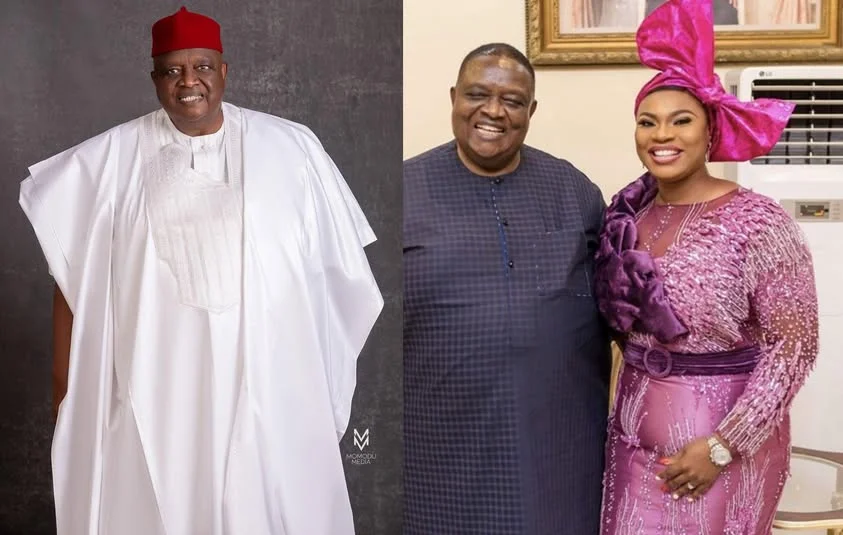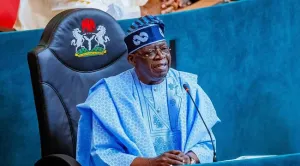Controversial Will of Late Ohanaeze Ndigbo Leader Chief Emmanuel Iwuanyanwu Bars Wife from Remarrying

The will of the late Chief Emmanuel Iwuanyanwu, a prominent Nigerian businessman and former President-General of Ohanaeze Ndigbo, has ignited widespread debate following revelations of a clause that restricts his widow, Lolo Frances Iwuanyanwu, from remarrying if she wishes to retain her inheritance. Chief Iwuanyanwu, who passed away in July 2024 at the age of 82, was a towering figure in Igbo socio-cultural leadership and a successful entrepreneur with interests spanning media, aviation, and manufacturing. His posthumous directives, particularly the remarriage clause, have drawn significant attention and polarized opinions across Nigeria.
According to details of the will, Lolo Frances, who was Iwuanyanwu’s second wife, risks losing all properties bequeathed to her if she chooses to remarry. Among the assets at stake is ownership of Magil Furniture, a business previously managed by Iwuanyanwu’s late first wife, Eudora. This condition has sparked heated discussions on social media platforms, with some criticizing it as an attempt to control his widow’s personal choices posthumously, while others argue it reflects cultural expectations or personal intentions to preserve family legacy. The clause has raised broader questions about gender dynamics, autonomy, and the legal enforceability of such stipulations in Nigerian law.
Beyond the controversial remarriage restriction, Iwuanyanwu’s will contains several other significant provisions. The family’s residence in Abuja has been bequeathed to one of his sons, ensuring the property remains within the direct lineage. Additionally, a property in London is to be sold, with the proceeds distributed as follows: 60% is allocated for the education of Iwuanyanwu’s youngest son, 30% to his first son, Jide Iwuanyanwu, and 10% to Ezinne, a family member residing in the London property, to support her relocation. This structured distribution underscores Iwuanyanwu’s emphasis on education and family welfare.
Another notable directive involves the transformation of the “Glass House,” a prominent property located near the Orji flyover in Imo State, into a charitable trust. The will specifies that this trust is to be managed by an independent board, reflecting Iwuanyanwu’s commitment to philanthropy and community development. This move aligns with his legacy as a leader who championed Igbo unity and socio-economic progress during his tenure as Ohanaeze Ndigbo’s President-General.
The public discourse surrounding the will has been amplified by Nigeria’s vibrant online community. On platforms like X, reactions range from support for Iwuanyanwu’s right to dictate terms for his estate to condemnation of the remarriage clause as outdated or unfair. Legal experts have also weighed in, noting that while individuals can impose conditions in their wills, such clauses must comply with Nigerian legal frameworks, including constitutional protections against discrimination. Whether the remarriage restriction would hold up in court, if challenged, remains a subject of speculation.
Chief Iwuanyanwu’s life was marked by significant achievements, including founding the Champion Newspapers, Iwuanyanwu Nationale Football Club, and multiple businesses under the Iwuanyanwu Group. His leadership of Ohanaeze Ndigbo, particularly during a turbulent period for Nigeria’s South-East region, earned him respect as a unifying figure. However, the controversy over his will highlights the complexities of balancing personal wishes, cultural norms, and modern values in estate planning.
As the debate continues, Lolo Frances Iwuanyanwu has not publicly commented on the will or its conditions. The family’s next steps, including the execution of the will and potential legal challenges, will likely remain in the public eye, given Iwuanyanwu’s prominence and the emotive nature of the issue. For now, the late chief’s final wishes have opened a broader conversation about legacy, autonomy, and the evolving role of tradition in contemporary Nigeria.






